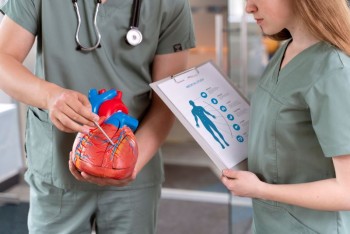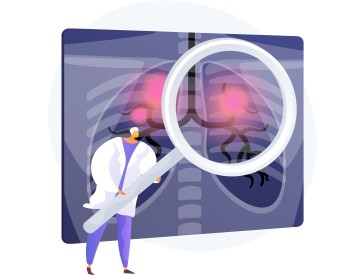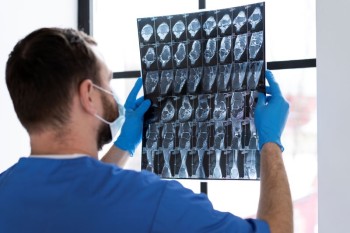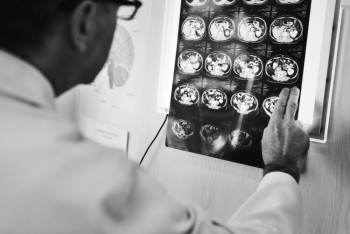
Address : Pulse Hitech Medical Centre, Kanakia Zillion, LBS Marg, Next to Kurla Bus Depot, Kurla (W), Mumbai, Maharashtra - 400070 Contact : 8530309333, 9892162344
CT Coronary Angiography Scan with Cost in Kurla, Mumbai in Detail
Introduction to CT
Coronary Angiography
A CT Coronary
Angiography (CTCA) is one of the most advanced heart imaging tests available
today. If you’ve ever wondered whether your heart arteries are healthy or
narrowed, this test gives a crystal-clear picture without inserting any
catheter into your body. For people in Kurla, Mumbai, it has become a trusted,
quick, and reliable method to evaluate heart health, especially when symptoms
of chest discomfort or breathlessness appear.
What Is CT Coronary
Angiography?
CTCA is a non-invasive
imaging test that uses a high-speed CT scanner and contrast dye to capture
detailed, 3D images of the coronary arteries. These arteries supply blood to
your heart, and blockages here can lead to heart attacks.
Why Is It Done?
Doctors recommend this
test to:
Detect coronary artery
blockages
Evaluate chest pain
Assess heart structure
Identify risks of heart
attack
Check stent or bypass
graft conditions
How It Helps in Early
Heart Disease Diagnosis
One of the biggest
advantages is early detection. CTCA can reveal even small plaque buildup before
symptoms become severe, helping you take action early.
How CT Coronary
Angiography Works
The Role of CT Scan
Technology
Modern CT scanners can
capture multiple cross-sectional images of the heart within seconds, even while
it's beating. These images are then reconstructed into 3D visuals.
Contrast Dye and Its
Importance
A special iodine-based
dye is injected to help the arteries appear clearly in the images. It
highlights blockages, narrowing, or abnormalities.
What the Scanner
Detects
The scan can detect:
Coronary artery
narrowings
Calcium deposits
Heart structure issues
Blood flow
irregularities
When Doctors Recommend
a CT Coronary Angiography
Symptoms That Lead to
the Test
You may be recommended
a CTCA if you have:
Frequent chest pain
Unexplained
breathlessness
Irregular heartbeat
High cholesterol
Persistent fatigue
High-Risk Groups
People with diabetes,
hypertension, obesity, a family history of heart disease, or those with
high-stress lifestyles are often advised to undergo the test.
Routine Screening for
Heart Health
Many cardiologists
suggest this scan for individuals above 40 as part of routine cardiovascular
screening.
Preparing for the CT
Coronary Angiography
Pre-Scan Guidelines
Your preparation can
affect image clarity, so follow instructions carefully.
Food Restrictions
Avoid caffeine for
12–24 hours
Stay light on meals
before the test
Hydrate properly
Medication Instructions
Some patients may be
advised to take beta-blockers before the scan to slow the heart rate, allowing
clearer imaging.
What to Wear and Bring
Wear loose clothes,
avoid jewelry, and carry previous medical reports to help the radiologist
interpret results accurately.
Step-by-Step Procedure
of the Scan
Arrival at the
Diagnostic Centre
Once you reach the
centre, the technician will verify your details and explain the procedure.
Positioning and
Monitoring
You lie on the CT
table, ECG leads are attached to your chest, and your heart rate is monitored
continuously.
Contrast Injection
Process
A small IV line is
inserted into your arm to administer the contrast dye. You may feel a warm
sensation—this is normal.
Actual CT Scan Duration
The scan itself takes
less than 10 minutes. You may be asked to hold your breath for a few seconds to
prevent motion blur.
Post-Scan Recovery
You can go home
immediately after the scan unless advised otherwise. Drinking water helps flush
out the dye.
Benefits of CT Coronary
Angiography
Non-Invasive
Alternative to Angiography
Unlike traditional
angiography, CTCA requires no catheter insertion.
Quick Detection of
Heart Blockages
It provides a fast,
detailed look at coronary arteries, enabling early intervention.
Helps Prevent Future
Heart Diseases
By identifying risks
early, lifestyle changes and medications can significantly reduce heart
problems.
Risks and Limitations
Radiation Exposure
Though minimal, the
scan does involve radiation.
Possible Dye Allergies
Some individuals may
react to iodine-based dyes.
Not Suitable for All
Patients
Patients with very
irregular heartbeats or severe kidney issues may need alternative tests.
Cost of CT Coronary
Angiography in Kurla, Mumbai
Average Price Range
In Kurla, the cost
typically ranges from ₹8,000 to ₹18,000, depending on the centre and scanner
quality.
Factors Affecting the
Cost
Type of CT scanner
(64-slice, 128-slice, 256-slice)
Radiologist expertise
Use of additional tests
Centre amenities
Insurance and Payment
Options
Many insurance plans
may cover the test when prescribed by a cardiologist. EMI and online payment
options are also available at top centres.
Top Centres for CT
Coronary Angiography in Kurla
What to Look for in a
Good Centre
Advanced CT scanners
Experienced
radiologists
Clean setup and quick
reporting
Good patient reviews
Recommended Diagnostic Centres
While choices vary,
Kurla has several reputed diagnostic hubs offering affordable CTCA services.
Choosing the Right
Radiologist
Always ensure the
radiologist is experienced in cardiac imaging for accurate results.
Best CT Coronary
Angiography Centre in Mumbai
Looking for the best CT
Coronary Angiography centre in Mumbai? Choose a diagnostic facility equipped
with advanced multi-slice CT scanners, experienced cardiac radiologists, fast
reporting, and exceptional patient care. The top centres in Mumbai offer
high-precision imaging, affordable pricing, and reliable accuracy to detect
heart blockages early and effectively. Whether you're checking symptoms or
prioritizing preventive heart health, Mumbai’s leading CT Coronary Angiography
centres provide safe, comfortable, and trusted scanning services for complete
peace of mind.
CT Coronary Angiography
Centre Near Me in Kurla
Looking for a reliable
CT Coronary Angiography centre near you in Kurla? Kurla offers several advanced
diagnostic facilities equipped with high-end CT scanners, skilled radiologists,
and quick reporting services to ensure accurate heart artery evaluations. These
centres provide safe, non-invasive scans using cutting-edge technology to
detect blockages, assess chest pain, and support early detection of heart
disease. With affordable pricing, experienced staff, and convenient appointment
options, finding a top-quality CT Coronary Angiography centre in Kurla has
never been easier for anyone prioritizing their heart health.
Tips to Get the Best
and Most Accurate Scan
How to Prepare Your
Body
Keep your heart rate
controlled and avoid stimulants like coffee.
Questions to Ask Before
the Test
What is the scanner
type?
How long will the
report take?
Are there any extra
charges?
Mistakes to Avoid
Arriving stressed
Ignoring fasting rules
Hiding medical history
After the Scan –
Understanding Your Results
What Reports Usually
Contain
Reports describe your
coronary artery condition, calcium score, and blockages.
How Doctors Interpret
the Results
Cardiologists compare
images with your symptoms and health history.
Next Steps After
Diagnosis
Based on results, your
doctor may recommend medication, lifestyle changes, or further tests.
Conclusion
CT Coronary Angiography
is a powerful, non-invasive tool for understanding your heart’s health. Whether
you’re experiencing symptoms or simply want peace of mind, this test offers
clarity, speed, and reliability. With affordable options available in Kurla,
Mumbai, getting this scan has never been easier or more accessible.
FAQs about CT Coronary
Angio in Mumbai with Cost
1. Is CT Coronary
Angiography painful?
No, the scan is
completely painless except for a small needle prick for the dye.
2. How long does the
entire procedure take?
Around 15–30 minutes,
including preparation.
3. Can I drive home
after the test?
Yes, unless your doctor
advises otherwise.
4. Is fasting required
before the scan?
Generally, yes—most
centres recommend 3–4 hours of fasting.
5. Who should avoid
CTCA?
People with kidney
issues, severe arrhythmia, or iodine allergy may need alternative tests.
(0)
Login to continue



